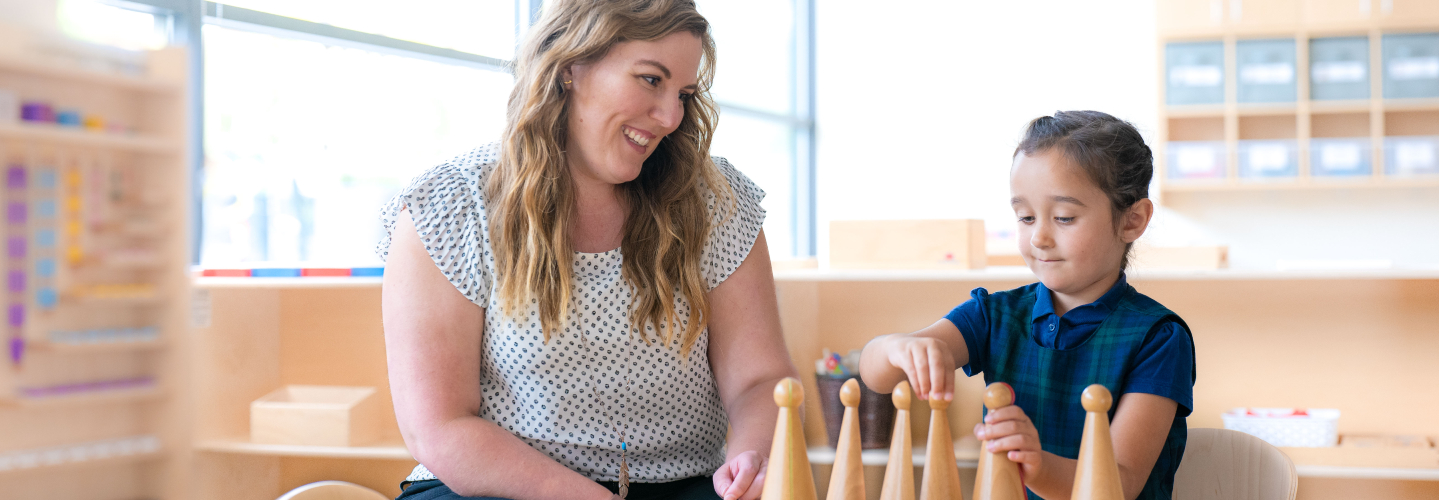The fundamental philosophies and methodology of teaching in a Montessori environment are what skillful teachers already aspire to for their students…an environment that provides careful attention to the needs of each child’s stage of development, while allowing freedom for them to discover their own path in becoming capable, competent, and independent individuals.
When you become a Montessori Guide, you join a global network of professionals who share the belief in creating the right environment for children to develop not only academically, but socially, behaviorally, and emotionally as well.
“The teacher’s task is not to talk, but to prepare and arrange a series of motives for cultural activity in a special environment made for the child.” Maria Montessori, The Absorbent Mind
Montessori Guides…
- Understand the developmental needs of children and act as a guide to assist them in finding their own natural path to learning.
- Design a prepared and beautiful environment that fosters hands-on learning, collaboration, and community.
- Influence the lives of the children and families in your school community.
- Guide children to passionately follow their interests while developing strong academic and leadership skills, self-discipline, a sense of responsibility, and independence.
- Train rigorously and graduate with a deep understanding of the Montessori philosophy of education and with high-quality skills that are recognized around the country.
- Believe in an educational model that meets children’s physical, emotional, and intellectual development.
- Cultivate the potential in every child and help shape a life that can transform the world.
Montessori education has helped children flourish for over 100 years and yet is often still so misunderstood. Aspiring Montessori guides are sometimes familiar with this method of education, while others have little to no experience or understanding of the Montessori Philosophy. What they do know however is that they are seeking something different. Something that fosters each child’s natural curiosity, independence, creativity, learning style, and self-esteem.
“Montessori education is student-led and self-paced but guided, assessed, and enriched by knowledgeable and caring teachers, the leadership of their peers, and a nurturing environment.” – AMSHQ.ORG – What is Montessori?
When you step into a Montessori classroom, you will immediately notice that it is a peaceful, loving place where children can explore, feel secure, and build critical skills in language, physical coordination, concentration, visual discrimination, and problem-solving. Montessori guides are models of respect and kindness, the daily schedule is unhurried, the decor is minimal and aesthetically pleasing, the materials and classroom are always prepared. Each child is treated as an individual to nurture with affection and respect. And, as is customary for Montessori environments, every detail is selected with the child’s whole development in mind. Check out a Montessori Primary classroom in action here.
By earning your Montessori certification, you are entering a career field that pays at a higher rate than traditional educational environments and joining a community of educators that are as passionate, engaged, and idealistic as you are.
Dr. Maria Montessori was ahead of her time, and today, significant research in neuroscience and child development is proving the strength of the scientific theory and research underpinning her philosophy. But of course, the best advertisement for Montessori is the Montessori children that grow up to be curious, lifelong learners who impact our world in tremendous ways!


